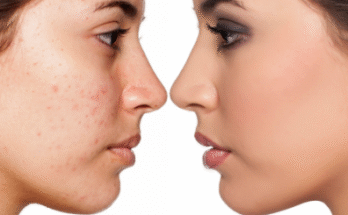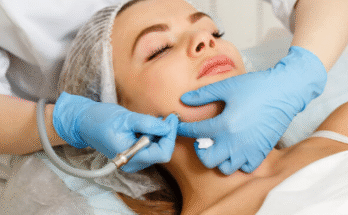Taking care of your skin can sometimes feel like a challenge, especially when breakouts appear at the most inconvenient times.
Whether you are a teenager, a young adult, or someone who still deals with the occasional blemish later in life, learning how to protect your skin is important for both confidence and comfort.
The good news is that with the right habits, skincare routine, and lifestyle adjustments, you can help your skin stay clearer and healthier.
Understanding Why Breakouts Happen
Before talking about how to protect your skin, it helps to understand what usually causes breakouts. Skin naturally produces oil, called sebum, to stay soft and moisturized. However, when too much oil combines with dead skin cells or dirt, it can clog pores. Bacteria that naturally live on the skin may also multiply inside those clogged pores, leading to inflammation and pimples. Breakouts can also be influenced by hormones, diet, stress, or even how you care for your skin daily.
It is important to remember that occasional pimples are normal and happen to almost everyone. The goal is not to aim for perfect, flawless skin, but instead to reduce irritation and protect the skin so it can stay balanced.
Keep Your Face Clean Without Overwashing
One of the most basic steps to protect your skin is regular cleansing. Washing your face twice a day helps remove dirt, oil, and impurities that build up throughout the day or night. However, overwashing can make things worse. Scrubbing your skin too often or using harsh cleansers may strip away natural oils, leaving your skin dry and irritated. When that happens, the skin sometimes produces even more oil to compensate, which may lead to more breakouts.
Choosing a gentle cleanser that matches your skin type is usually the best choice. Foaming cleansers can be helpful for oily skin, while cream-based cleansers may suit dry or sensitive skin better. The key is to clean without making your skin feel tight or uncomfortable afterward.
Moisturize to Maintain Balance
A common myth is that people with oily or acne-prone skin should avoid moisturizer. In reality, skipping moisturizer often makes breakouts worse because the skin becomes dehydrated and produces more oil. The right moisturizer helps maintain balance by keeping skin hydrated without clogging pores.
If you are worried about breakouts, look for moisturizers labeled as “non-comedogenic” or “oil-free.” These are designed not to block pores. Lightweight gel or lotion-based formulas are often ideal for people who struggle with frequent breakouts.
Sun Protection Matters More Than You Think
Protecting your skin from the sun is not only important for long-term health but also for preventing breakouts and irritation. Sun exposure can dry out the skin, causing it to produce extra oil as it tries to recover. Some people also notice that old blemishes leave darker spots behind when exposed to sunlight, a process known as hyperpigmentation.
Wearing sunscreen daily is one of the best ways to protect your skin. Modern sunscreens are lightweight and available in formulas designed specifically for acne-prone skin. Gel-based or mineral sunscreens are good choices if you prefer something that feels light and less greasy.
Avoid Touching Your Face
Many people touch their face without realizing it. Resting your chin on your hand, scratching an itch, or adjusting glasses can all transfer oil and bacteria from your hands to your skin. While it may seem like a small thing, these habits can sometimes contribute to clogged pores and new breakouts.
Being mindful of this habit can make a difference. If you need to touch your face for applying skincare or makeup, make sure your hands are clean. This simple step helps reduce the chances of irritation and keeps your skin healthier.
Manage Stress for Healthier Skin
Stress does not directly cause pimples, but it can make them worse. When you are stressed, your body releases hormones that can trigger more oil production. This may explain why breakouts sometimes appear during busy weeks or before important events.
Taking time to manage stress can improve both your skin and overall well-being. Activities like exercise, deep breathing, journaling, or spending time outdoors can all help. Even a few minutes of relaxation a day can make a positive difference.
Be Careful With Makeup Products
Makeup is a great way to express yourself and boost confidence, but certain products may contribute to clogged pores if they are too heavy or not removed properly. Choosing makeup labeled as non-comedogenic is usually a safer choice for acne-prone skin.
Removing makeup before bed is one of the most important steps. Sleeping with makeup on allows oils and impurities to stay trapped against the skin overnight, which can lead to breakouts. Using a gentle makeup remover or cleansing oil followed by a mild face wash is an effective way to keep your skin fresh.
Stay Hydrated and Maintain a Balanced Diet
What you put into your body also plays a role in how your skin looks and feels. Drinking enough water each day helps your skin stay hydrated from within. While water alone does not cure acne, it supports overall skin health.
Food can also influence breakouts in some people. For example, very sugary or processed foods may contribute to inflammation that makes acne worse. On the other hand, eating more fruits, vegetables, whole grains, and lean proteins gives your skin the vitamins and nutrients it needs to repair and protect itself. Everyone’s body is different, so paying attention to how your skin reacts to certain foods can be helpful.
Create a Consistent Routine
One of the most overlooked steps in protecting your skin from breakouts is consistency. Trying too many new products at once or constantly switching routines can irritate your skin. It usually takes a few weeks to notice results from any skincare routine. Being patient and sticking with gentle, effective habits is often more successful than looking for instant fixes.
A simple routine might include cleansing, moisturizing, and sunscreen during the day, with cleansing and moisturizing at night. Extra steps like exfoliation or masks can be added once or twice a week, but it is best to avoid overdoing them.
Know When to Seek Professional Help
Sometimes, breakouts can be persistent or more severe than what basic skincare can handle. In those cases, it may be helpful to talk to a dermatologist or licensed skincare professional. They can recommend treatments tailored to your skin’s needs and guide you on the safest, most effective ways to manage acne. Seeking professional advice is not just for severe cases—it can also provide peace of mind if you are unsure about what products or habits are best for your skin.
Final Thoughts
Protecting your skin from breakouts is a journey that combines good habits, gentle care, and lifestyle awareness. While occasional pimples are normal and happen to almost everyone, you can take steps to minimize them and support healthier skin overall. By cleansing gently, moisturizing, wearing sunscreen, avoiding unnecessary touching, managing stress, and eating a balanced diet, you give your skin the best chance to stay clear and comfortable.
Remember that every person’s skin is unique. What works for one individual may not work for another, so it is important to be patient and listen to your own skin. With consistency, self-care, and mindful choices, you can protect your skin from breakouts and feel more confident every day.

